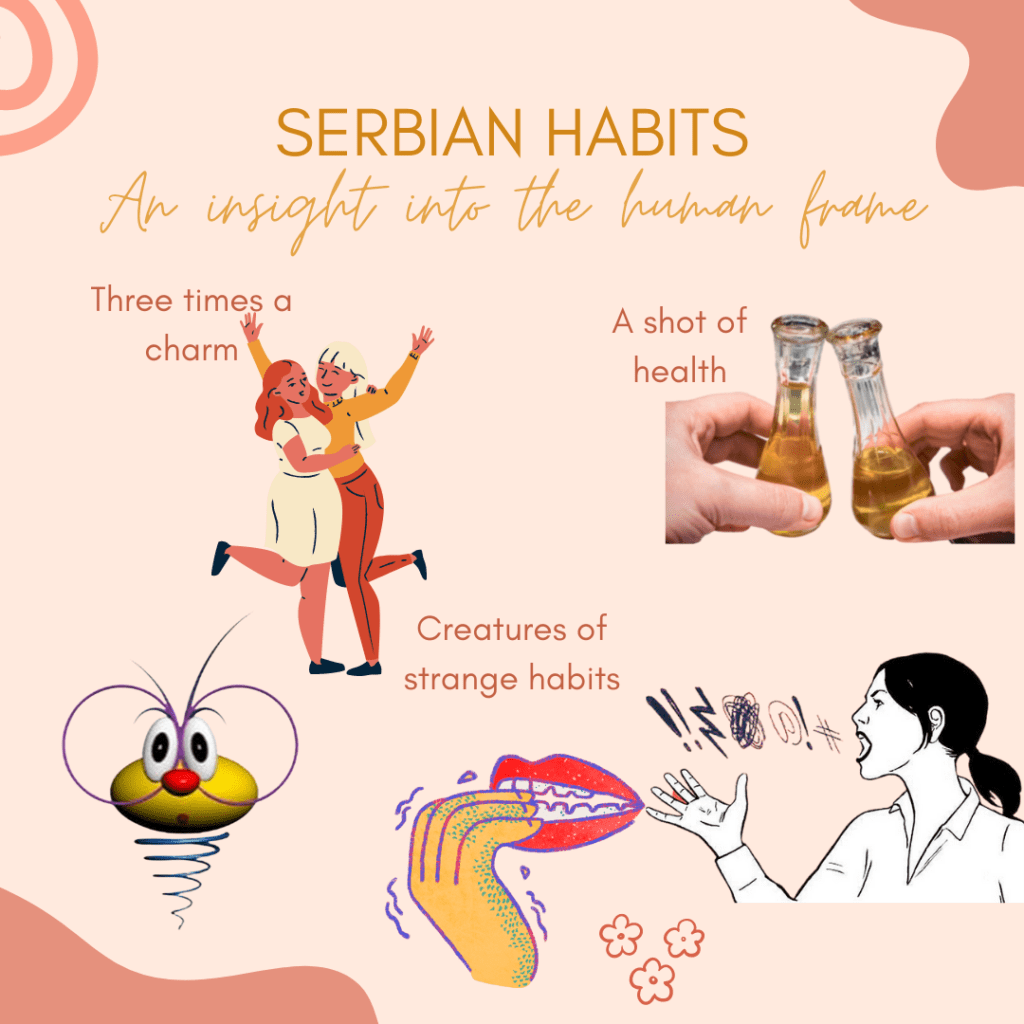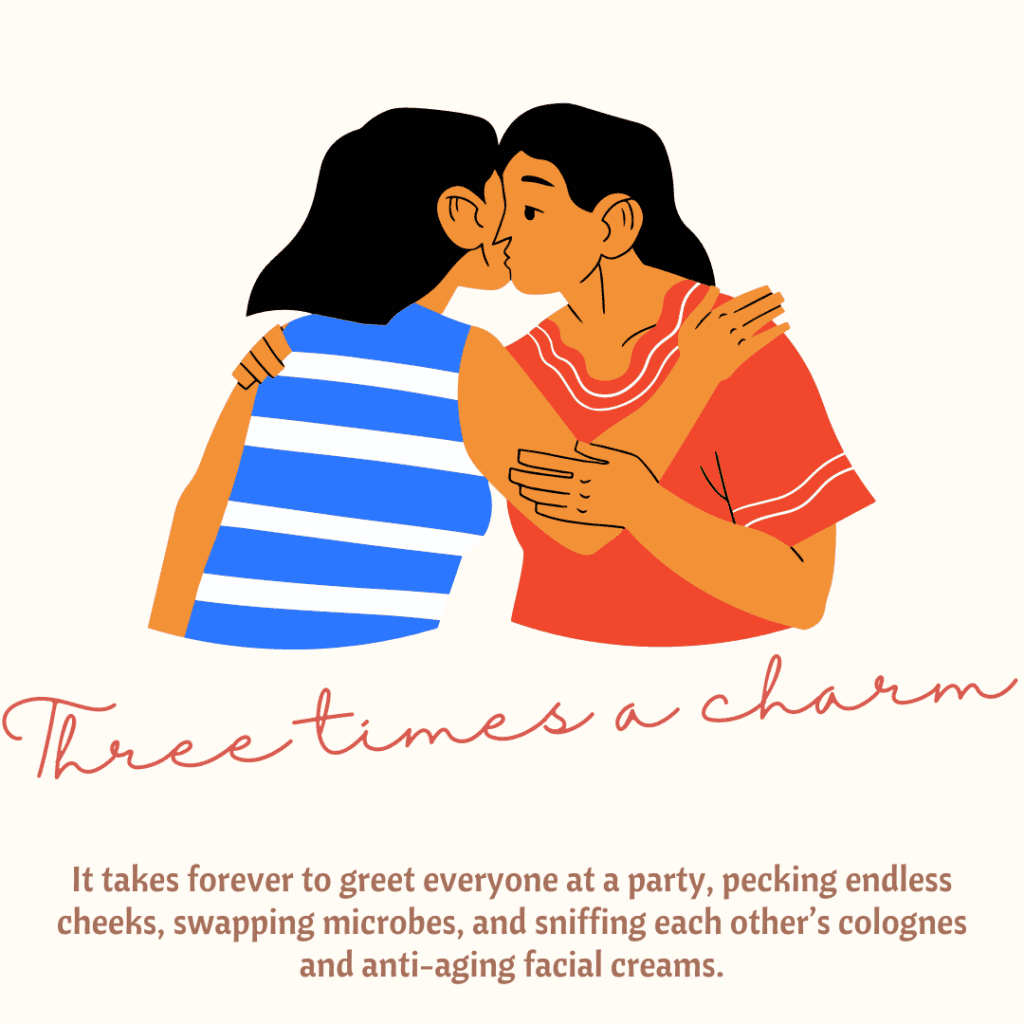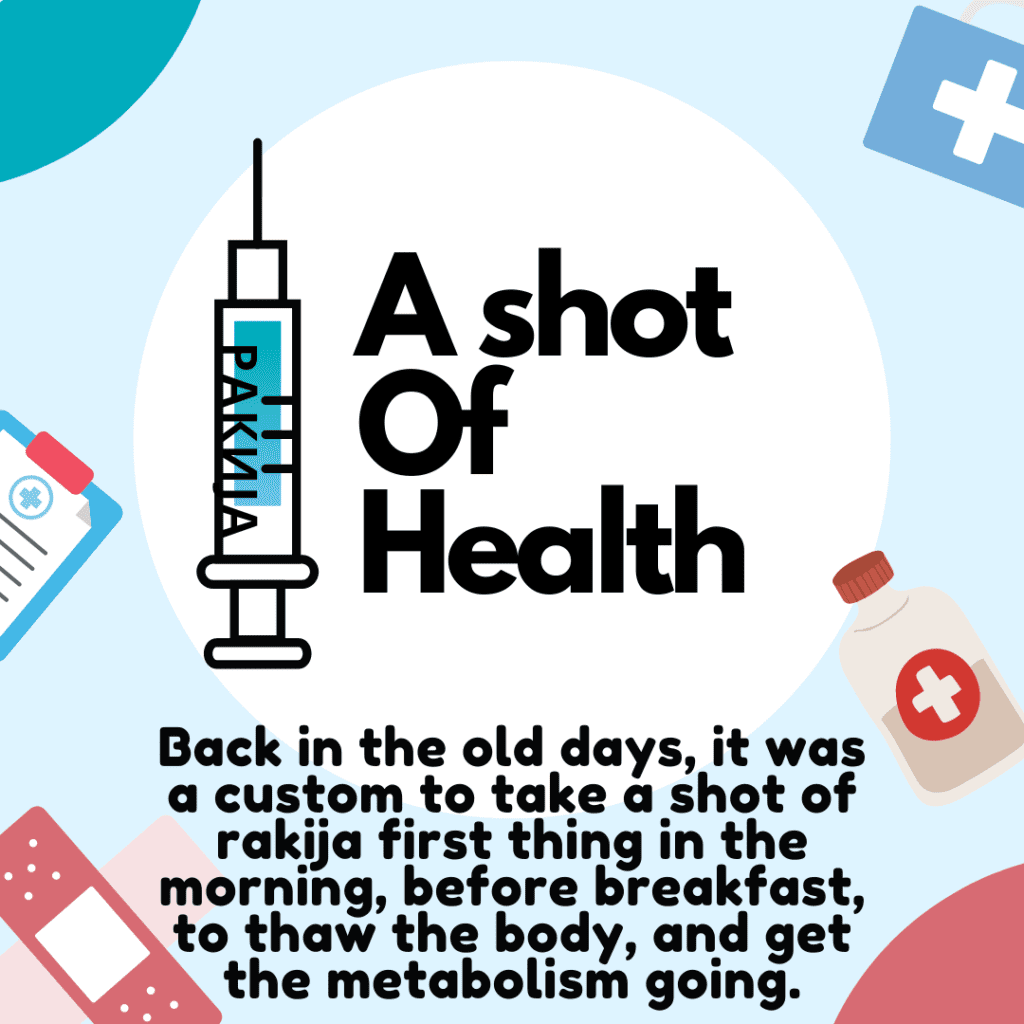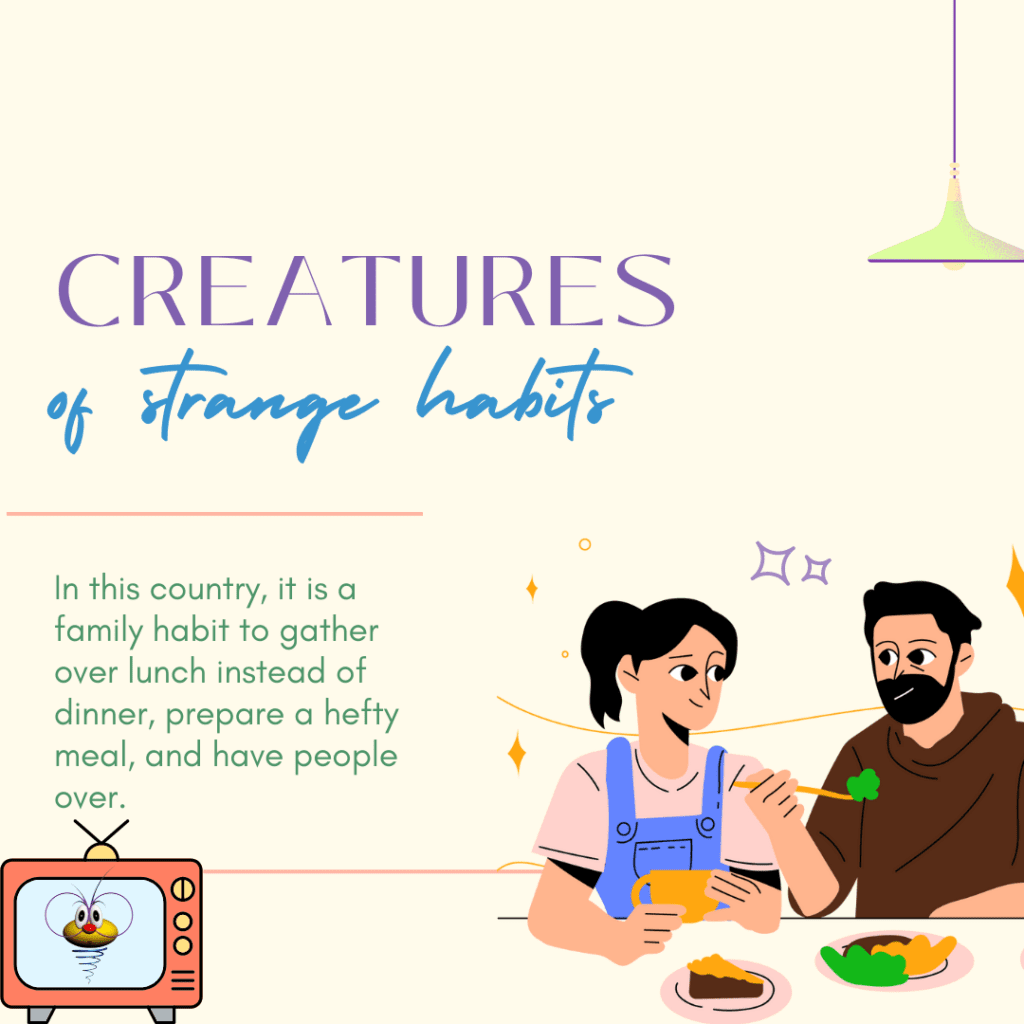Serbian habits: An insight into the human frame

“We are what we repeatedly do.”
—Will Durant
Do you ever think about habits and rituals you perform daily that are a subconscious part of who you are? Have you ever considered them weird or illogical? We all have some odd habits, from the way we cook our eggs to how we brush our teeth and wash our hair. Now, imagine a country of weird habits, an entire nation of practices too difficult to explain to foreigners, yet too irresistible not to try.
What are habits, anyway? Something that you do daily? Something you like doing? What about things you don’t like doing but nonetheless do every day? Are they habits or tasks?
An honest question, really. However, Serbian people would hardly think of a thing you absolutely have to do every day – washing dishes, cleaning, cooking, going to work – a habit. Serbian habits show a bigger picture than mere task-performing for the sake of task-performing itself. Our habits are pure, free from any restrictions in any form of the modal verbs must and have to.
As we like to say, the only thing we all must do is die; nothing else is a must in our fleeting lives.
Will Durant said — We are what we repeatedly do. Excellence, then, is not an act, but a habit. It explains why Serbs are excellent in their steadfast rituals with backgrounds in tradition, superstition, and lunacy.

Three times a charm
If you know anything about Serbian traditions, you then know enough about the sacred Serbian threes. Greeting our friends, family, and people we meet for the first time with a triple kiss on both cheeks is probably the first thing a foreigner learns about us – apart from the juicy, roll-off-the-tongue curse words.
The symbolism of the number three is historically long and pragmatically too long – it takes forever to greet everyone at a party, pecking endless cheeks, swapping microbes, and sniffing each other’s colognes and anti-aging facial creams. If you’ve never locked yourself in a bathroom, desperate to rinse off everyone’s scented perfumes and questionable amounts of saliva from your face, can you even call yourself a true Serb?
It’s a mystery why we still do this to ourselves. We are perfectly capable to give one single peck on the cheek, or even gracefully shaking hands. It’s a cultural thing, a traditional one; certainly not hygienic. The most recent pandemic might have contained this mysterious habit for a short period of time, but in the words of one Denzel Washington, the dwindling death toll of coronavirus ain’t got shit on us.

A shot of health
Okay, I’ve been meaning to find the perfect opportunity to discuss one major red flag in Serbian mentality that we cleverly disguise as a habit. Serbian people drink WAY too much.
It had to be said.
What is considered a drinking problem in the rest of the world, here on the Balkan peninsula a person who refuses to drink apparently has a problem. Alcohol is beloved in every part of the globe, sure, but do people in other countries drink from morning till the next morning? I am not talking about special occasions like weddings, birthdays, slavas, or funerals. I am talking about day-to-day habitual sipping of various forms and quantities of ethanol beverages.
Back in the old days, it was a custom to take a shot of rakija first thing in the morning, before breakfast, to thaw the body, and get the metabolism going. In the countryside, villagers still practice early morning rakija thawing as they prepare to start a hard-working day on the farm. Another shot or two of rakija before lunch to make sure the metabolism is up and running. Before you know it, it’s dinner time, and more shots of rakija are being fired across the table, with rivers of wine or beer during the meal to help the wounded.
This all makes sense if you’re living in the countryside and work from morning till nightfall. Yet the drinking problem has transported itself to cities and towns across the Balkans, to those who do not work in the fields or tend to livestock all day in the harshest of weathers. Now it’s become a habit, a deeply rooted Balkan habit – I do not dare to exclude the rest of the peninsula – that is sure to be the end of us.
No matter how worrying this might be, I do believe it’s a part of why foreigners love our countries. Alcohol is cheap, there’s a kafana or a bar at every corner, and heavy food that goes with the heavy drinking is nothing short of divine – dear gods, ditch ambrosia, visit Serbia – so good times are always guaranteed to tourists.
Another alcohol-related habit that we all instinctively adhere to is mandatory eye contact during toasts. You know how in movies when a group of friends cheer with their glasses full, and they all reach out and clink at the same time? Yeah, we don’t do that. In Serbia, we toast individually, one by one, locking gazes as our glasses meet.
Do not, I repeat, do not try to avert your eyes when you clink glasses with a Serb. A special circle in hell is reserved for such abominable infidels.

Creatures of strange habits
The list of unusual things Serbian people do goes on.
In this country, it is a family habit to gather over lunch instead of dinner, prepare a hefty meal, and have people over. We don’t do fancy dinners. They are unimportant and often skipped because lunch is the star of the day. Perhaps dinners are out of the picture because we lunch late. No noon lunches here – we eat between 2 pm and 3 pm.
Scary, I know.
If you do happen to dine, you would usually do it during or some short time after Slagalica. Now, Slagalica is not a habit in Serbia – it’s a cult. It is the most famous, longest-running TV quiz show that families gather for every evening, weekends included. We make it a national, fun-time habit to try to outsmart the contestants, laugh at them, and sometimes cheer for one or the other.
With every episode of the beloved Slagalica and its quirky mascot Skočko (that literally translates to Jumpy) we get a free, much-needed, yet unasked-for lesson in Serbian pronunciation from the hosts. They make an annoying habit out of bending the widely accepted pronunciation of trivial words, schooling us every evening at seven sharp.
I would like to include swearing on this list of Serbian habits, but I believe that topic has already been covered. Greetings with three kisses on the cheek and swearing could easily be Serbia’s two major exports (sorry, Novak Đoković, you’ve kind of become international). Using curse words has entered our bloodstream and mindset, and is now an important, subconscious part of our identity. We swear mechanically. It spurts out of us more out of habit than intent.
If our chronic habit of swearing is not the greatest indicator of who we are as a nation, I don’t know what is.
“Rigid, the skeleton of habit alone upholds the human frame.”
—Virginia Woolfe
Habits are forces of nature, at least for those who do nothing to change them. We accept them as the ultimate gift from our creator(s), even when they are harmful to us or others. Habitual drinking is sure to ruin our health sooner or later. Some people make a habit out of medication, overeating, or other harmful practices, and when they are confronted with the idea of changing them, they simply respond – I can’t, it’s a habit.
We all foster some nasty habits that speak volumes of who we are. I bite nails, for example. My daughter nibbles on her own hair (as opposed to nibbling other people’s hair). Others pick noses and shout over the phone. I’ve seen people taking a walk after dinner, and I’ve heard of people who jog in the morning.
Each to their own.
Truly yours,
Vanja
